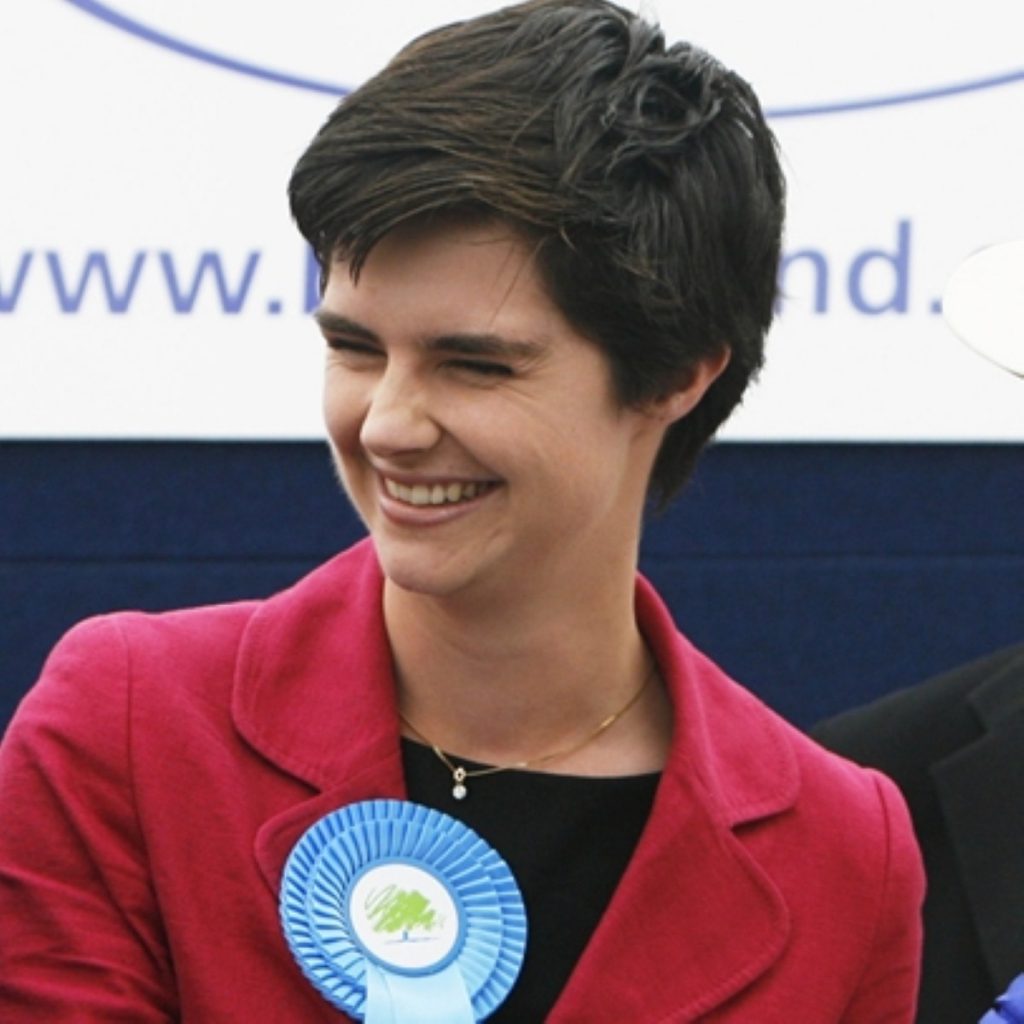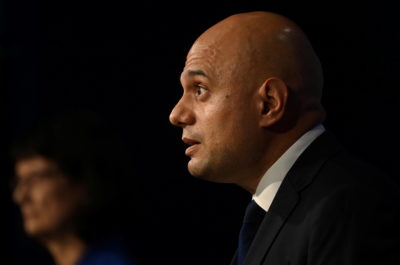Prime minister Rishi Sunak had given Conservative MPs a deadline of 5 December to declare what constituency they planned to stand in at the next election, expected in 2024. The date coincided with the final decision on boundaries for the next election, so that Conservative Campaign Headquarters could start to look at the full electoral picture with new constituencies.
But while the 5 December deadline pertained specifically to the choice of seat an MP stands in come 2024, it has also served to focus minds among those parliamentarians who have been wavering over their political futures.
As a result, high-profile MPs Sajid Javid, Chris Skidmore, Chloe Smith, William Wragg and Dehenna Davison have all announced they are stepping down, prompting fears of a mass exodus of Conservative parliamentarians. Some MPs think that as many as 80 colleagues out of a possible 356 will declare they are heading for the commons exit door, in public or in private, before the next election.
The departures create the impression that the parliamentary party is feeling fatalistic. Plainly, it is not just the practicalities of boundary changes that are being considered here.


As Politics.co.uk‘s analysis underlines below, the departure of high-profile MPs before their time bodes ill for the Conservative party into 2024 and beyond…
Sajid Javid, Bromsgrove
- Age: 53
- MP since: 2010
- 2019 majority: 34,408
- Swing needed in 2024 for Conservative loss: 21.3% (to Labour)
Sajid Javid is the most high-profile Conservative MP to announce that he will be standing down at the next election.
Indeed, if there is such thing as a Conservative “big beast”, then Sajid Javid, the former chancellor, health secretary, home secretary, culture secretary and business secretary, is surely one of them.

Sajid Javid’s resignation as health secretary in July 2022 helped trigger Boris Johnson’s downfall
He is also a two-time Conservative leadership candidate, vying to replace Theresa May in 2019 and Boris Johnson in 2022. However, in the 2019 race, Javid was eliminated on the fourth ballot; and in the 2022 contest in the summer, Javid failed to secure the backing of the necessary 20 Conservative Party MPs to qualify for the first ballot.
Given Javid’s lengthy and successful career, the former chancellor’s exit might not typically excite interest among observers at Westminster. However, in the wake of the cases discussed below, his departure cannot help but validate the already-established view that Conservative MPs are making the decision to leave politics for greener pastures.
According to a report in the Financial Times, Javid has already held talks with Pimco about a career after politics. Pimco is the world’s largest fixed income manager, and given Javid’s already significant city experience pre-politics, this may prove to be a natural move. Indeed, such as career change would probably prove more fulfilling — not to mention more profitable — than an extended period in opposition.
Chloe Smith, Norwich North
- Age: 40
- MP since: 2009
- 2019 majority: 4,738
- Swing needed in 2024 for Conservative loss: 5.1% (to Labour)
When Chloe Smith first won the seat of Norwich North in a by-election in 2009, David Cameron hailed the result as “historic”.
The 16.5-point swing in Smith’s favour was a sign of the times both for the restyled Conservative party and the increasingly beleaguered Gordon Brown. The victory has gone down in the annals of Conservative folklore as a key indication that the party was on its way back to government.

A triumphant Chloe Smith after retaking Norwich North for the Conservatives in 2009
In 13 years as an MP, Smith has spent the vast majority of those in government. But at 40 years old, few would suggest that Smith’s race is run. In fact, many on the party right rate the experienced minister, who served briefly as Liz Truss’s work and pensions secretary, very highly indeed.
However, as a former cabinet minister who has already reached the top of politics, what is there left for Smith to accomplish? And having recently defeated breast cancer and with two young kids, would another term really be worth personal strain politics places on an individual?
Furthermore, since 1983, Norwich North has been one of those curious “indicator” seats that always votes for the government of the day. In 1997, it turned Labour and, in 2009, it turned for Smith and Cameron.
By leaving on her terms, Smith may now avoid the humiliation of standing in a line on election night as her political opponents cheer and her job changes hands.
No one wants to be a Michael Portillo, an Ed Balls or a Nick Clegg.
William Wragg, MP for Hazel Grove
- Age: 34
- MP since: 2015
- 2019 Majority: 4,423
- 2024 swing needed for a Conservative loss: 5% (to the Liberal Democrats)
Since winning the constituency of Hazel Grove from the Liberal Democrats in 2015, William Wragg has been a fiercely independent voice on the backbenches.

William Wragg was only 27 when first elected as the MP for Hazel Grove
Outspoken on Brexit and lockdown rules, Wragg prominently called for Boris Johnson’s resignation seven months before it was fashionable.
As vice-chair of the 1922 committee of backbench Conservatives and chair of the public administration and constitutional affairs select committee, Wragg is an experienced and highly respected political operator. He has also openly suggested that he does not covet a ministerial post — a rarity in modern politics.
Unlike Smith, Wragg’s main challenge in his Hazel Grove constituency comes from the Liberal Democrats. At the 2019 election, Wragg saw off a third consecutive challenge by candidate Lisa Smart by 4,423 votes.
Wragg’s decision to step down at only 34 may be because he has sensed a change in Hazel Grove’s political winds. It might be fourth time lucky for Smart and the Liberal Democrats in 2024.
Dehenna Davison, MP for Bishop Auckland
- Age: 29
- MP since: 2019
- 2019 Majority: 7,962
- 2024 swing needed for a Conservative loss: 8.9% (to Labour)
Rising star Dehenna Davison’s decision to stand down has come as a significant shock both to the Conservative party and British politics at large.
Working class, northern and Brexit-supporting, Davison symbolised the new Conservative coalition which delivered Johnson’s thumping victory at the 2019 general election. She was viewed to be settling in well to her role as a levelling up minister, a post she won under Truss and retained under Sunak. It is highly unusual that a recent ministerial appointee is stepping back from politics.

Dehenna Davison has been called the ‘MP for Tik Tok’
On paper, Bishop Aukland is a safer constituency than both Norwich North and Hazel Grove — Davison produced a Conservative majority of 7,962 at the 2019 election. However, the specific political contexts of the Red Wall mean victory will be far from guaranteed in 2024.
Davison came into parliament in 2019 having flipped the seat from Labour. But recent polling suggests that the Labour party has reversed its fortunes in the Red Wall and is set to retake many of the seats, including Bishop Aukland.
Davison is only 29, and she may return at another general election for Bishop Aukland or potentially another seat. But, for now, the loss of the Red Wall poster girl will be viewed as a serious loss within Conservative party circles.
Chris Skidmore, MP for Kingswood
- Age: 41
- MP since: 2010
- 2019 Majority: 11,220
- 2024 swing needed for a Conservative loss: 11.4%
Chris Skidmore made a splash when he was elected as the MP for Kingswood in 2010 as an author of the infamous treatise Britannia Unchained (2012). However, unlike his co-authors Liz Truss, Dominic Raab, Kwasi Kwarteng and Priti Patel, this statement of ideological ambition never translated into high government office.
Instead, he is a former science minister and current chair of the ongoing net zero strategy review.

Chris Skidmore leads the government’s net zero review
The recent boundary review will mean that Skidmore’s Kingswood constituency in Gloucestershire will cease to exist after the next election. But rather than challenge for a neighbouring constituency or a safe seat elsewhere, which would be common practice under these circumstances, Skidmore has chosen to step down.
One wonders whether Skidmore, who is only 41, would have decided differently if the Conservative government was on track for a fourth term in office.
Under such circumstances, his position as the government’s net zero tsar could certainly have led to a prominent ministerial role.
But it appears Skidmore thinks he can better contribute to the net zero battle outside parliament than, say, in opposition as shadow secretary of state for environment, food and rural affairs or as a select committee chair.
2024 and beyond…
That a number of prominent Conservative MPs have chosen to stand down at the next election poses several practical and political challenges.
Firstly, the Conservative party will want candidates with established personal appeals and excellent constituency knowledge in what will be a tough 2024 campaign. Marginals like Hazel Grove and Norwich North will be even more difficult to defend with untested, unknown candidates.
Secondly, whatever the outcome of the next election, the Conservative party will want to retain key parliamentary talent. That young MPs like Chloe Smith, William Wragg, Dehenna Davison and Chris Skidmore have chosen to stand down is a serious blow.
But, above all, the public will view an exodus of Conservative MPs as part of a natural end to over a decade of Conservative rule. The public perception that the Conservative party is tired and in need of some time in opposition will only be bolstered by ex-minsters like Sajid Javid essentially admitting as much by leaving themselves.
So the parliamentary Conservative party could look very different come 2024. It will be fascinating to see the political and ideological implications of this play out in real-time.












